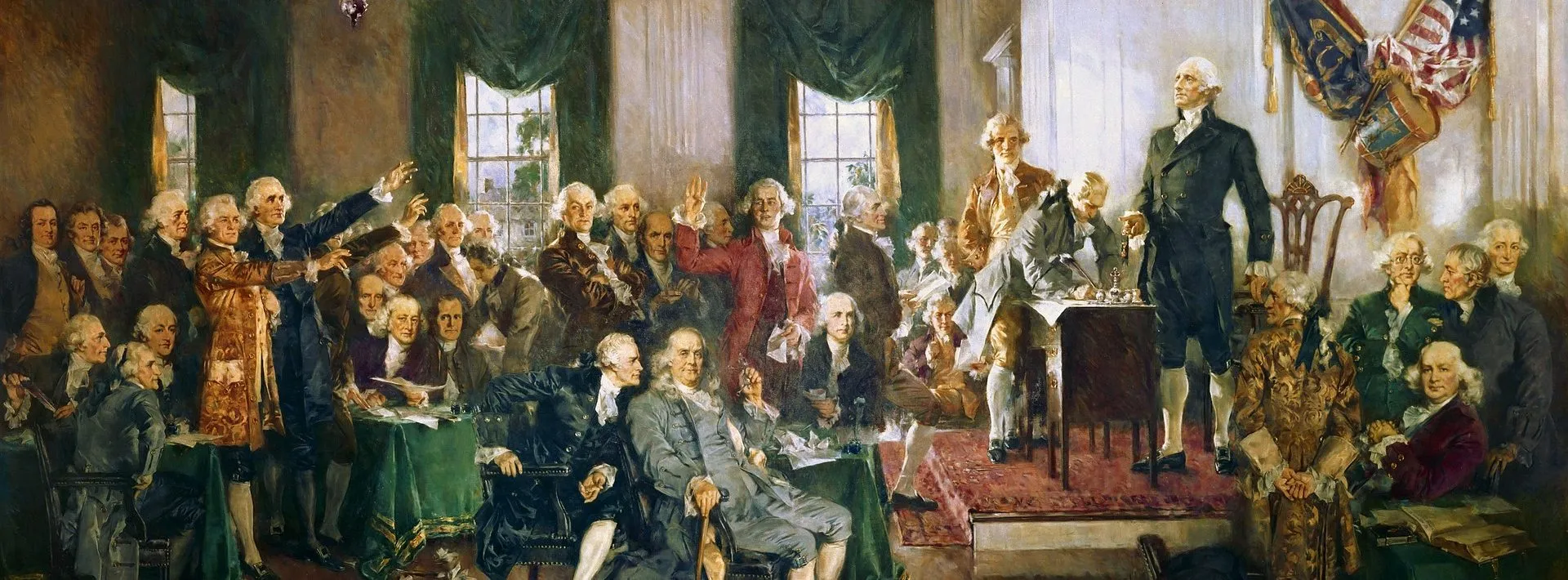Here is an ISSUE BRIEF published by Salt & Light Global‘s Justice Center. It discusses the Civil Rights Commission unlawfully usurping legislative authority.
Introduction
In 2017, a LGBTQ+ activist group, Equality Michigan, supported by the ACLU, requested the Michigan Civil Rights Commission (MCRC) to “issue an interpretative [sic] statement.” Specifically, these proponents sought to expand the categories prohibiting discrimination contained in the Elliott-Larsen Civil Rights Act (hereinafter ELCRA)(MCL 37.2101 et seq.). At a hearing on September 18, 2017, attorneys for the Great Lakes Justice Center testified about the illegality of the action. The Justice Center represented several Michigan Legislators at the hearing. An Assistant Attorney General also stated that the MCRC lacked legal authority to act and would not have immunity from suit if they adopted the statement. The Commission tabled the proposal.
On May 21, 2018, the Commission, now fully informed that they lacked legal authority to act, nonetheless attempted to amend the provisions of ELCRA to include sexual orientation and gender identity. Under the guise of an interpretive statement, the Commission indicated it immediately planned to begin processing complaints based upon these new classifications.
The Commission redefined the word “sex” to include gender identity and sexual orientation. On many occasions, the Michigan Legislature explicitly refused to make this change. The legislature’s repeated confirmation leaves no doubt about the meaning of the term “sex” in ELCRA. It clearly does not include these new categories. The MCRC’s action exceeded the Commission’s lawful authority.
Thereafter, at the request of the Speaker of the House and the Senate Majority Leader, the Attorney General issued an AG Opinion (rule of law for state agencies) invalidating the action of the MCRC:
The Michigan Civil Rights Commission’s Interpretative Statement 2018-1, which concludes that the term “sex” as used in ELCRA includes sexual orientation and gender identity, is invalid because it conflicts with the original intent of the Legislature as expressed in the plain language of the Act, and as interpreted by Michigan’s courts. (AG Opinion No. 7305). This ruling, issued on July 19, 2018, is the law for state government entities. (AG Opinion No. 7305)
On July 23, 2018, many citizens testified before the Michigan Civil Rights Commission. Every citizen testifying asked the MCRC to reconsider and to follow the law. Executive Director Augustin Arbulu responded by defying the law. Arrogantly rejecting the legally binding AG opinion, he urged the Commission to direct the department to accept cases and investigate claims in defiance of the AG opinion
MCRC claims it holds authority to add the new categories through an interpretive statement pursuant to MCL 37.2601, MCL 24.201 et seq., and Rule 37.23 of the Michigan Administrative Code.
The MCRC’s action unlawfully circumvents a politically accountable, elected legislature. Legislators, not commissioners, properly hold the constitutional authority to enact and amend laws in our state. The arguments of the MCRC, and the proponents of their action, are meritless.
I. Michigan Law
While the MCRC holds some authority to issue interpretive statements on issues under its purview (R37.23 of the Michigan Administrative Code), the Commission does not have the authority to change a statute or amend ELCRA. The Commission’s authority does not extend to creating new civil rights, but only to enforcing the civil rights guaranteed in the Constitution and state law. (AG Opinion No. 7305). “Agencies are bound by [state] laws; any authority they have to interpret a statute cannot be used to change the statute or to enforce the statute in a way that conflicts with the law’s plain meaning.” (AG Opinion No. 7305). Article IV, Section 1 of the Michigan Constitution provides that “[t]he legislative power of the State of Michigan is vested in a senate and a house of representatives,” not the MCRC. The Legislature has decided to not add these categories many times over the past thirty years. The MCRC is not the Legislature, it is not politically accountable to the people, and it is not authorized to make laws governing the people.
An interpretive statement is not binding law. It does not, therefore, make LGBT discrimination “unlawful in Michigan.” It is not legally binding on employers and individuals in our state. It does not give any legal remedies to alleged victims of discrimination.
First, MCL 37.2601 says nothing about the authority of the MCRC to enact legislation or interpretive statements that carry the force of law. In fact, it clearly states the opposite. The MCRC can only make “recommendations” to the Governor “for legislative or other action necessary to effectuate” its constitutional mandate (MCL 37.2601(1)(e)). It confers no independent power or authority to enforce its recommendations in any way. Because the MCRC can only make recommendations to the Governor for legislation, it clearly does not have the right to amend statutes and enact new legislation on its own authority.
Second, the Administrative Procedures Act (APA) is a misleading source of authority for the interpretive statement (MCL 24.201 et seq.). The phrase “interpretive statement” is used in only two sections of the APA.
MCL 24.207 defines “Rules” that are binding law on businesses and individuals. MCL 24.207(h) states that an “interpretive statement . . . in itself does not have the force and effect of law but is merely explanatory” (emphasis added). This refutes all claims that an interpretive statement passed by the MCRC to add the new categories makes such actions “unlawful,” or that businesses and individuals are legally responsible to comply with such a statement, or that the statement provides new legal remedies to anyone. These claims are simply not true.
MCL 24.232(5) also directly refutes claims that ELCRA now protects new classes not originally protected under the act. This section of the APA states that an “interpretive statement . . . is not enforceable by an agency, is considered merely advisory, and shall not be given the force and effect of law. . . . A court shall not rely upon a(n) . . . interpretive statement . . . to uphold an agency decision to act or refuse to act” (emphasis added). Once again, this demonstrates that proponents’ claims regarding the binding authority of an interpretive statement are clearly erroneous.
Nothing in Michigan law supports the broad claim that an interpretive statement by an unelected administrative agency like the Commission is legally binding and enforceable against Michigan businesses and citizens. Lawyers will certainly challenge, and courts will certainly strike, any attempt to enforce such legislation in the guise of an interpretive statement.
II. Federal Law
Proponents of expanding ELCRA claim that Title VII case law interpretations by federal courts around the country provide binding and controlling law in Michigan. This is also inaccurate and very misleading. None of the federal cases these proponents cite involve ELCRA and none is binding precedent in Michigan. “‘[W]hile federal precedent may often be useful as guidance . . . such precedent cannot be allowed to rewrite Michigan law.’” (AG Opinion No. 7305 citing Garg v. Macomb Co Cty Mental Health Servs, 472 Mich. 263, 283 (2005)). Claims that these federal cases and interpretations are “equally applicable to” Michigan’s Elliott-Larsen Act are also false. The original statutory text remains the root of Michigan law. (AG Opinion No. 7305).
Proponents argue that Title VII, a federal statute about employment discrimination, (see 42 U.S.C. 2000e-2), is similar enough to ELCRA that the MCRC should disregard the differences and pretend they are the same law. Yet, nothing in Title VII has anything to do with public accommodations or housing. The sexual harassment sections of ELCRA are different than Title VII’s. Proponents claim that because some federal courts have re-defined Title VII’s definition of the word “sex” as applied to employment discrimination, this new court-created definition must apply to Michigan’s ELCRA as well. However, the federal courts that re-defined Title VII did so through a premise that a “legal doctrine evolves.” (AG Opinion No. 7305). “But under Michigan law, the mechanism for evolution in statutory law is through legislation,” not agency interpretation. (AG Opinion No. 7305). Michigan courts “have not extended ELCRA to require treating discrimination based on sexual orientation or gender identity as discrimination based on sex. As a result, Michigan law on the meaning of discrimination based on sex has not evolved in the way that federal law may be evolving.” (AG Opinion No. 7305). Proponents then improperly conclude that these federal court opinions require enacting an interpretive statement adding the new categories.
The cited federal court decisions do not control the interpretation of Michigan statutes. Indeed, the cases proponents cite come from other states or from non-binding federal jurisdictions interpreting other state or federal statutes relating only to employment discrimination. Further, the Equal Employment Opportunity Commission (EEOC) recommendations and decisions cited by proponents explicitly pertain to employer/employee relationships, not housing or public accommodations. To claim that everything a federal agency recommends is always true, lawful, and in the best interest of society ignores our nation’s history and negates any need for judicial review.
In fact, the U.S. Department of Justice (DOJ) now takes the position that Title VII does not include sexual orientation or gender identity. (See government’s brief in Zarda v. Altitude Express). The DOJ brief states:
Moreover, whatever this court would say about the question were it writing on a blank slate, Congress has made clear through its actions and inactions in this area that Title VII’s prohibition of sex discrimination does not encompass sexual orientation discrimination. . . . The question presented is not whether, as a matter of policy, sexual orientation discrimination should be prohibited by statute, regulations, or employer action. . . . The sole question here is whether, as a matter of law, Title VII reaches sexual orientation discrimination. It does not, as has been settled for decades. . . . Judges in the past, in fact, have decided that in common, ordinary usage in 1964 – and now, for that matter – the word ‘sex’ means biologically male or female.
The DOJ further argues in its brief that “the EEOC is not speaking for the United States and its position about the scope of Title VII is entitled to no deference beyond its power to persuade. The theories advanced by the EEOC and the Seventh Circuit lack merit and these theories are inconsistent with Congress’s clear ratification of the overwhelming judicial consensus that Title VII does not prohibit sexual orientation discrimination [emphasis added].” DOJ also notes pointedly that “every subsequent Congress since 1991 … has declined to enact proposed legislation that would prohibit discrimination in employment based on sexual orientation.”
Proponent’s reliance on inapplicable out-of-state cases, federal cases, or EEOC recommendations to override the clear parameters of ELCRA is baseless. Moreover, neither the MCRC nor its activist proponents cite mandatory United States and Michigan Supreme Court precedent, which controls this issue.
The United States Supreme Court “repeatedly has held that state courts are the ultimate expositors of state law, see, e.g., Murdock v. City of Memphis, 20 Wall. 590 (1875).…” Mullaney v. Wilbur, 421 U.S. 684, 691 (1975). Further, the Court has held that “Congress has explicitly disclaimed any intent categorically to preempt state law or to ‘occupy the field’ of employment discrimination law. See 42 U.S.C. §§ 2000e-7 and 2000h-4.” California Federal Savings & Loan Assn v. Guerra, 479 U.S. 272, 281 (1987).
42 U.S.C. 2000e-7 (Title VII, Section 708, Effect on State Laws) states:
Nothing in this subchapter shall be deemed to exempt or relieve any person from any liability, duty, penalty, or punishment provided by any present or future law of any State or political subdivision of a State, other than any such law which purports to require or permit the doing of any act which would be an unlawful employment practice under this subchapter.
Congress implemented Title VII with the explicit intent to not limit state law.
The Michigan Supreme Court ruled on the issue of interpreting ELCRA considering federal interpretations of Title VII. In Chambers v. Trettco, Inc, 463 Mich 297 (2000), the Court reversed the Michigan Court of Appeals when it relied on federal interpretations of ELCRA. The Court stated:
We hold that the principles stated in the federal cases relied on by the Court of Appeals do not apply to claims brought under Michigan’s Civil Rights Act. Instead, we adhere to prior Michigan precedent and the specific language of the Michigan statute.
Id. at 303 (emphasis added).
The opinion further held that although the Court can sometimes look at federal interpretations, Michigan courts are not compelled to do so.
… we have generally been careful to make it clear that we are not compelled to follow those federal interpretations. See, e.g., Radtke, supra at 381-382, 501 N.W.2d 155. Instead, our primary obligation when interpreting Michigan law is always “to ascertain and give effect to the intent of the Legislature, … ‘as gathered from the act itself.’ ” McJunkin v. Cellasto Plastic Corp., 461 Mich. 590, 598, 608 N.W.2d 57 (2000). . . . [W]e cannot defer to federal interpretations if doing so would nullify a portion of the Legislature’s enactment.
Id. at 313-314 (emphasis added).
In Haynie v. State, 468 Mich 302 (2003), the dissenting opinion made a nearly identical argument as proponent’s claim here. The dissent made the same comparisons and cited many of the same cases upon which proponents of the MCRC’s action rely. The dissent stated that “[b]ecause Michigan’s employment-discrimination statute so closely mirrors federal law, we often rely on federal precedent for guidance.” Id. at 325. The majority opinion explicitly rejected the dissent’s arguments when it held:
Even if, as the dissent states, the Michigan Legislature relied heavily on the federal civil rights act in drafting Michigan’s Civil Rights Act, the Michigan Legislature was clearly not bound by the federal civil rights act. That is, the Michigan Legislature was free to adopt a civil rights act that differed from the federal civil rights act, and although, as the dissent points out, there are many similarities between the two acts, the Michigan Legislature did, in fact, choose to adopt an act that is different from the federal act. Despite the dissent’s determination not to allow them to do so, the Michigan Legislature is allowed to determine for itself the extent to which it wishes to track the language of the federal law. In particular, Michigan’s Civil Rights Act is different from the federal civil rights act with regard to its treatment of sexual harassment. The dissent fails to respect this difference and, instead, concludes that because these acts are nearly identical they must be construed to mean exactly the same thing. We cannot agree that any time the Michigan Legislature creates a law that is “similar” to a federal law, it must be made identical, and the two laws must be interpreted to mean exactly the same thing.
Id. at 319-320 (emphasis added).
Michigan courts are not bound by federal interpretations that might be analogously applied to ELCRA. They are instead bound to comply with the Michigan Legislature’s intent when it enacted ELCRA. It is for the Michigan Legislature to establish public policy for Michigan, not other state or federal court interpretations of a different statute.
Moreover, the Michigan Court of Appeals has directly rejected the new interpretation. In Barbour v. Dept. of Social Services, 525 U.S. 1095 (1999), the Court ruled that the term “sex” contained in ELCRA does not include sexual orientation. “Barbour specifically holds that sexual orientation is not protected, and no binding Michigan case holds that gender identity is protected.” (AG Opinion No. 7305). This interpretation is binding law in Michigan and is, therefore, binding on the Civil Rights Commission. (AG Opinion No. 7305).
MCRC supporters argue that the attempt by a limited number of federal courts to re-define Congress’ plain meaning of the word “sex” must be adopted as Michigan law. To the extent these activists contend that the Michigan Legislature intended that those additional classifications (i.e. sex stereotypes, gender identity, sexual orientation, etc.) must now be protected under ELCRA, they are mistaken, at best. In Bush v. Shabahang, 484 Mich. 156, 173 (2009), the Supreme Court held:
This Court has previously recognized that legislative history may be used to determine legislative intent. This Court previously held that “[w]here the Legislature has considered certain language and rejected it in favor of other language, the resulting statutory language should not be held to authorize what the Legislature explicitly rejected.”
On eleven different occasions since 1999, the Michigan Legislature has considered legislation to add additional classifications to ELCRA such as gender identity, sexual orientation, etc. All eleven times, the Legislature has rejected that “interpretation”. See Michigan Legislature HB 5959 (2014), HB 5804 (2014), SB 1053 (2014), SB 1063 (2012), HB 4192 (2009), HB 4160 (2007), SB 0787 (2005), HB 4956 (2005), SB 0609 (2003), HB 4850 (2003), and HB 5107 (1999). The Michigan legislature clearly refused to add to ELCRA the additional categories that the MCRC added under the guise of an interpretive statement.
The MCRC now attempts to change the meaning of ELCRA to include categories our legislature explicitly rejected. Despite how other state or federal courts may try to re-define the word “sex” for other statutes, our legislature made its intent clear. Michigan courts, and the MCRC, must follow it. “The fact that the branch of our government with the authority to enact laws has declined to extend ELCRA’s coverage to reach sexual orientation and gender identity means that an executive agency (i.e., the Civil Rights Commission) necessarily lacks the authority to achieve that extension through its limited authority to enforce the law, not to make it.” (AG Opinion No. 7305). The MCRC has the constitutional duty to enforce the laws passed by the legislature, not make up its own laws. Proponents of the MCRC’s action repeatedly failed to persuade the Legislature to amend ELCRA. The MCRC holds no authority to bypass the Legislature.
III. Other Considerations
Beyond the clear legal principles delineated above that argue against the MCRC enforcing the new interpretive statement, there are other public policy reasons to oppose expanding the categories currently protected under ELCRA. See the attached Issue Brief here.
Conclusion
For all the above reasons, we respectfully urge the Michigan Civil Rights Commission to not act outside its constitutional and statutory authority by issuing or enforcing the requested interpretive statement. This issue is squarely within the constitutional authority of the Michigan Legislature, not the Commission. The Commission’s actions are, therefore, clearly unlawful, not enforceable, and should be reversed.
Prof. William Wagner, J.D.
David A. Kallman, J.D.
Stephen P. Kallman, J.D.
John S. Kane, J.D.
Erin E. Mersino, J.D.
Katherine Henry, J.D.











